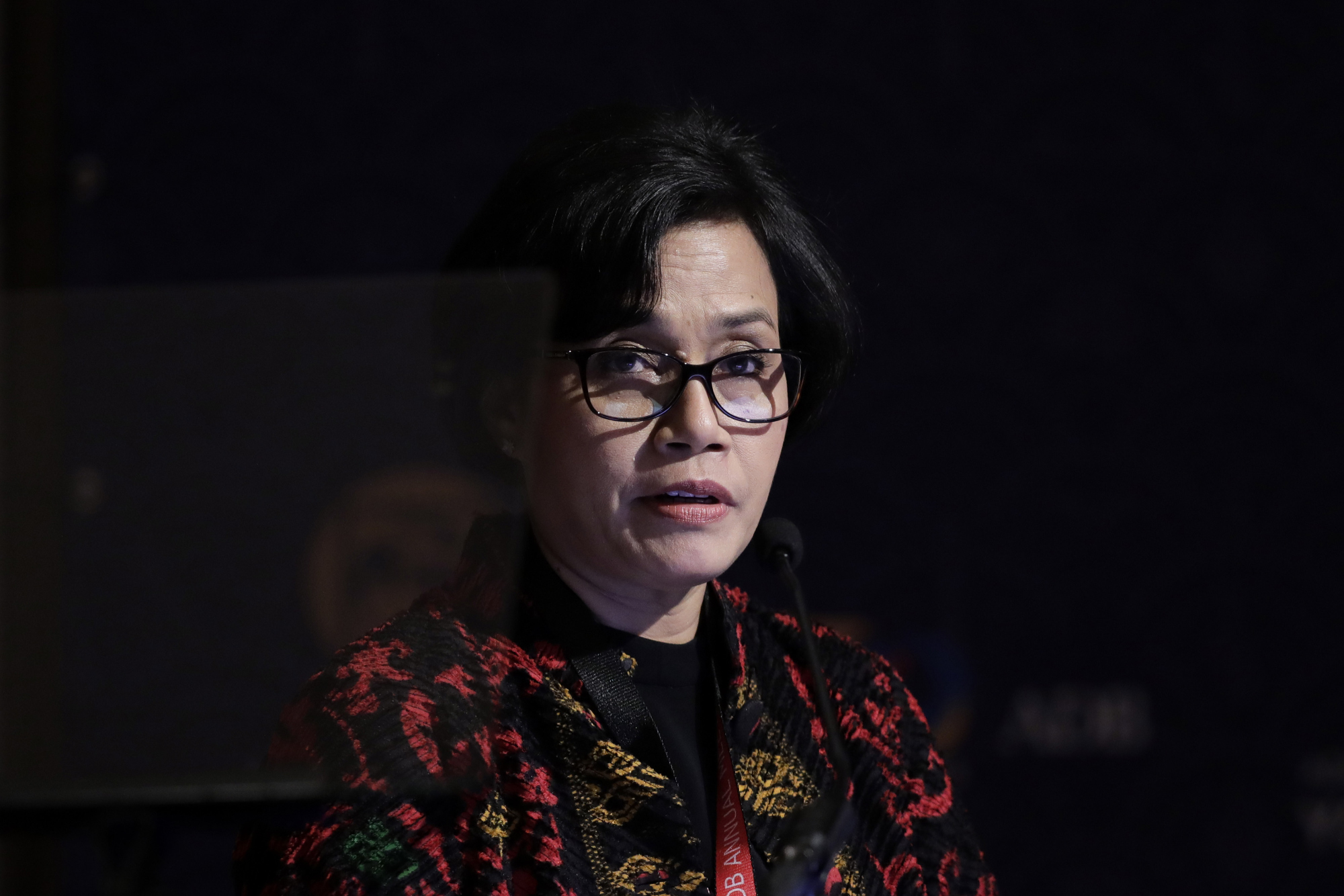Within the austere confines of Indonesia’s Finance Ministry, even the cookies are under review as budget strains threaten to undermine President Joko Widodo’s ambitious infrastructure plans for Southeast Asia’s largest economy.
Finance Minister Sri Mulyani Indrawati urged spending restraint in a recent speech to officials as she grapples with a fiscal shortfall and widening budget deficit. When a couple of dozen biscuits at a morning meeting weren’t eaten and thrown out, she told her charges to tackle waste of any kind.
"Because the meeting was at eight in the morning, no one touched those cookies. Twenty four snacks for one meeting. Imagine in a day how many meetings we can have," Indrawati said in remarks that were posted on social media last week. "I’ve heard about this line many times during my period at the World Bank, that less is more."
Indonesia’s economy has been growing at about 5 percent, short of the 7 percent Widodo targeted when he came to office almost three years ago. The government projects the 2017 budget deficit will widen to 2.9 percent of gross domestic product, just short of a legal limit of 3 percent.
In a positive global market environment, a budget deficit below 3 percent of GDP shouldn’t be a problem for the government as it raises financing, said Dian Ayu Yustina, an economist at PT Bank Danamon in Jakarta. But global monetary tightening as the U.S. Federal Reserve prepares to reduce its balance sheet and geopolitical factors could affect capital flows.
“The risk still lies in the financing,” Yustina said. "Therefore it’s imperative for the government to maintain a positive perception of the economy."
The rupiah is up 0.9 percent against the dollar this year, extending a 2.3 percent advance in 2016, according to data compiled by Bloomberg. Foreign investors have pumped $9.1 billion into the nation’s bonds and stocks since the beginning of this year.
Widodo, known as Jokowi, will lay out his 2018 budget plans when he addresses the parliament on Wednesday. His two speeches, on the eve of Indonesia’s Independence Day, will mark out spending priorities as well as key assumptions and risks for the economy.
The strains on the 2017 budget already have the government eyeing up additional debt and needing to borrow 461 trillion rupiah ($34.5 billion) to fund the fiscal shortfall. The current account deficit has also widened, hitting $5 billion or 1.96 percent of GDP in the second quarter, on the back of a decline in exports and a rise in imports.
“The risk of widening deficits right now is primarily that a tight budget means the government has very little room left to use the budget to drive growth, even if overall public debt is low,” said Roland Rajah, director of the International Economy Program at the Sydney-based Lowy Institute.
“The presence of a still large current account deficit meanwhile means that if growth does pick up, the current account might quickly enter the danger territory again of 3 percent of GDP or higher," he said.
Cutting low quality spending like energy subsidies and raising Indonesia’s low tax take through policy changes and better compliance and enforcement are key to creating the fiscal space for more productive spending on infrastructure, education and health, he said.
Compounding the budget blues, Indonesia is also facing a decline in oil revenue and steadily rising fuel imports.
Jokowi, who a year ago vowed to develop every inch of the Indonesian archipelago, has ramped up government spending on infrastructure to more than 60 percent of the annual budget since taking over in 2014. His chances of re-election in 2019 are also closely tied to the success of his $350 billion infrastructure agenda.
But with a tax-to-GDP ratio of 10.8 percent, fiscal pressures are persisting. Indrawati, who wants to raise the ratio to 16 percent by 2019 said last month the rate is “low and unacceptable” when compared to neighbors such as Malaysia which has a ratio of 15.6 percent and Thailand at 16 percent.
Total government debt has also been rising, climbing from 2,605 trillion rupiah at the end of 2014 to 3,780 trillion rupiah by the end of July. At about 30 percent of GDP, that’s still significantly lower than many other countries and far less than the 60 percent allowed by law.
House of Representatives Deputy Speaker Fadli Zon, who is also a member of the main opposition party Gerindra, said the president should be showing greater spending restraint at a time when the Indonesian economy is under-performing. "The increase in debt is concerning me and my colleagues. It is at a dangerous level," Zon said in an interview.
"It’s also become a burden on our national budget," Zon said. "He has to prioritize which infrastructure projects should be done at this time of crisis."
The Lowy Institute’s Rajah said the growing government debt and budget deterioration present risks for Jokowi’s infrastructure plans.
“Widodo can try to finance investment by relying more on SOEs to raise capital from the market and using PPPs,” he said. “This is difficult enough, but even if successful the risk is either that it leads to a higher current account deficit or could crowd out other investment by the private sector.”
And so Indrawati is plowing on with her plans to shave the deficit, one snack at a time.
“If our budget can be saved 15 percent from procurement, my deficit for this year can fall to 2.5 percent," she said, according to the comments posted on her Instagram account. "It’s not about being stingy, but it’s about your mindset.” – Bloomberg
